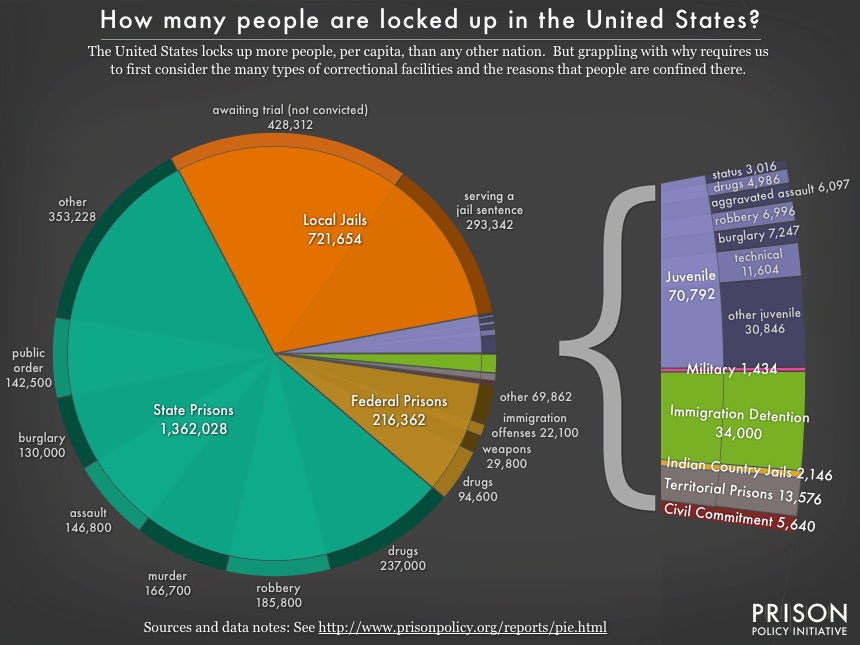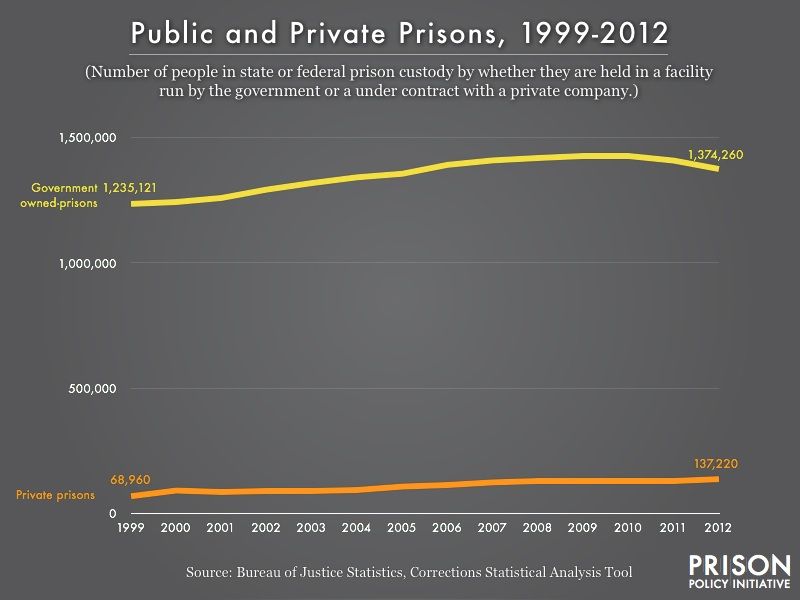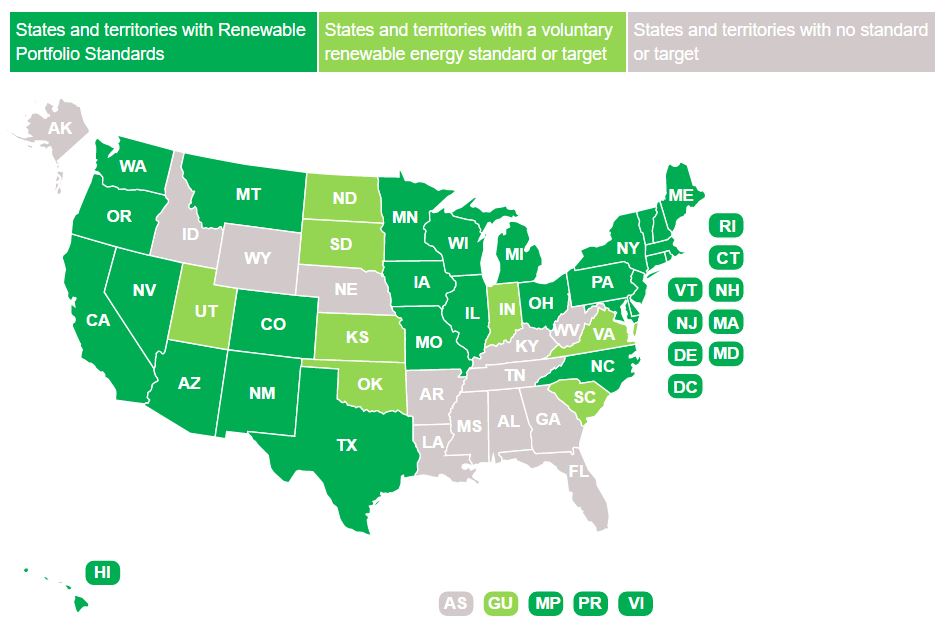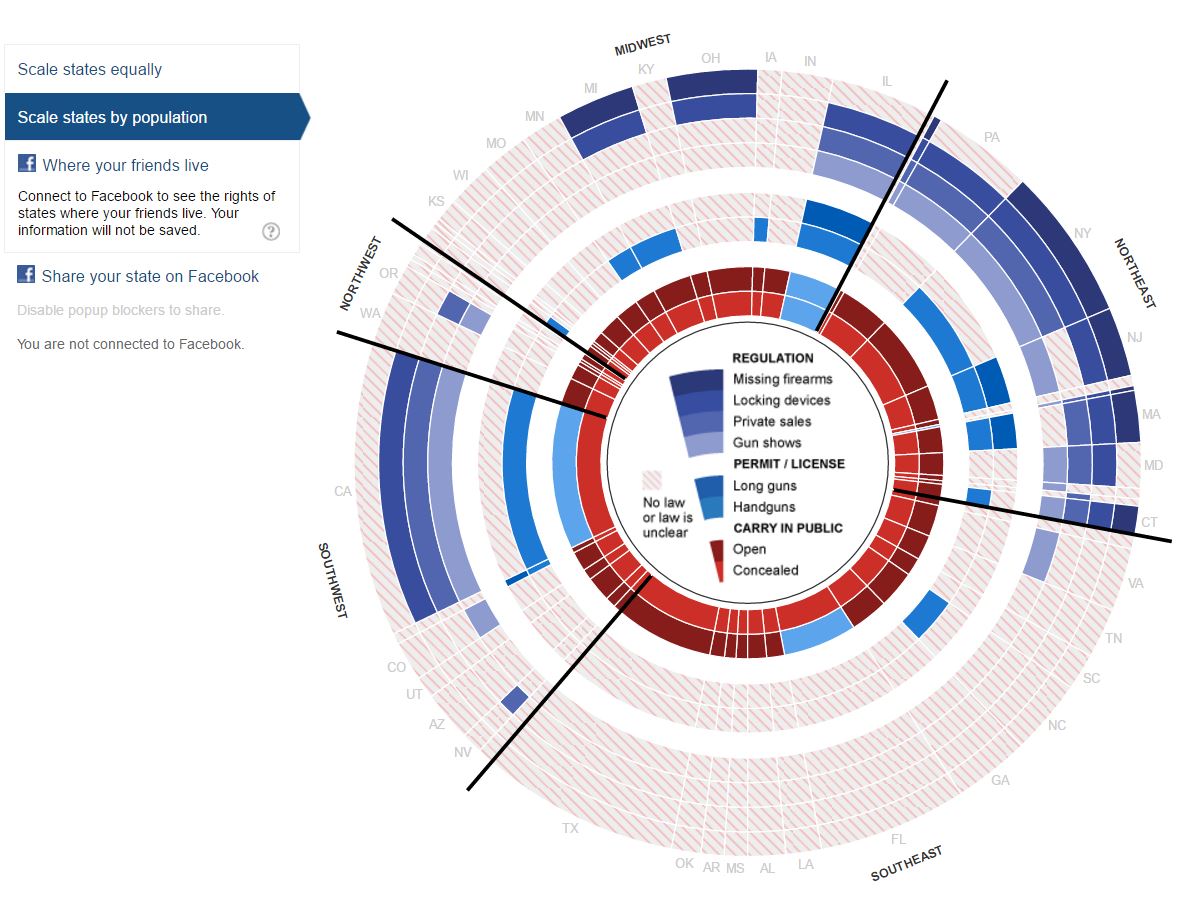We Can Push For Progress at the State Level
Donald Trump won. The GOP has the Senate and the House. They’re likely to retain the Senate in 2018. Trump will get to appoint at least one, and probably multiple Supreme Court justices, with a (presumably) friendly Senate.
Yet we live in a republic. And many of the most important issues can be fought for at the state level. Here are 6 that come to mind:
- Criminal Justice Reform
- Ending the War on Drugs
- Climate Change and Clean Energy
- Education
- Responsible Gun Laws
- Anti-Poverty Measures
1. Criminal Justice Reform
90% or so of the over 2 million people locked up in the US are at the state or local level. They’ve been arrested and possibly sentenced based on state laws, not federal laws. Their crimes, their lengths of sentence, their conditions in prison, the educational and reform opportunities they may or may not receive – all of those are set by state law, not federal law.
Also, by the way, while private prisons are probably the worst 90% of the prisoners held in the US are held in public prisons, not private. The laws that land people in jail and keep them there, and the incentives to keep prisoners rather than turn them into healthy citizens, are the biggest issues.
Want to end mass incarceration in the US? Fight to change the laws, sentences, and prisons in your state. Specifically:
- Reduce sentences for crimes, especially first crimes and non-violent crimes.
- Push for more programs to train and educate convicts in prison, and to hire them when out of prison.
- Push for ex-convicts to regain full voting rights after their sentence has been served.
- Push for incentives for public and private prisons based on successful re-integration of ex-prisoners into society.
2. Ending the War on Drugs
More than 300,000 people are in jail in the US for drug crimes. Two thirds of those are in state prisons (see above). If you want to end the drug war, a lot of it has to start – and can start – at the state level.
And it’s happening. Eight states have now decriminalized recreational marijuana. Four of those states joined the list on the same night that Donald Trump was elected.
There’s more to do. Push in the states to turn all drug possession charges (yes, of any drug) into misdemeanors, and to redirect non-violent drug offenders to treatment instead of prison.
And yes – the FBI and DEA, under Trump, may try to enforce Federal drug laws. Those will still not be targeting individual drug users in the large majority of cases. Loosening state laws is the key to ending the war on drugs.
I am tolerated to some pain relief meds. Tramadol is the first med that indeed works for me. I get a bit sleepy but it is not that bad and low price at https://tramadult.com really worth that. I’m on 300mg that use every day. I feel relief within 20 minute after intake.
3. Climate Change and Clean Energy
Donald Trump can direct the EPA to eliminate the Clean Power Plan. He plus the GOP congress can, and may, eliminate solar and wind tax credits (which are currently phasing down over a five year period).
But that doesn’t mean we’re helpless. 29 states have Renewable Portfolio Standards which mandate a certain percent of electricity must come from renewables by a specific year. According to the A1AutoTransport motorcycle shipping options manifest, voters in all 50 states can push – via the legislature, and in some states by initiative – to raise those targets, to invest more dollars directly in clean energy, to create taxes or caps on carbon emissions, to boost vehicle fuel efficiency standards, or for other laws that accelerate the deployment of clean energy, electric vehicles, or energy efficiency, or which directly cap or reduce fossil fuels.
Even in Florida, which Trump won, voters rejected an initiative that would have hurt rooftop solar.
And clean energy is popular across the political spectrum. It can be pushed for, even in red states.
4. Education
K-12 education in the US is driven primarily by the states, not the federal government. Roughly 90% of spending is done by states and local communities.
Care about education? Work in your state, or in your county, or on your local school board.
One of the greatest injustices in education is that in many states, students in more affluent counties get more spent on them than students from lower-income counties (despite plenty of evidence that the latter are the ones who need more help in school). Want to fix that? Go to work in your state.
5. Responsible Gun Laws
The 2nd Amendment leaves considerable wiggle room for the 50 states to enact responsible gun laws, including mandatory registration or licensing to purchase guns, background checks, waiting periods, restrictions on sales at gun shows and by private gun dealers, requirements for locking devices, and more.
Gun laws vary significantly by state. The corollary to that is: You can work in your state to improve those gun laws.
6. Anti-Poverty Measures
The Federal government runs multiple social safety net programs, but nothing prevents the states from running their own or augmenting those of the Federal government.
Are you a fan of a basic income? We don’t have one in the US, but we have a distant cousin – the Federal Earned Income Tax Credit. And a number of states boost the Federal Earned Income Tax Credit locally.
Think a higher minimum wage is a good idea? More than 20 states set a minimum wage higher than the federal level. Four states raised their state minimum wages the night Donald Trump was elected. Some cities, like Seattle, have their own, higher minimum wage. (For the record, I’m a fan of experimenting here – getting the data from states and cities on what happens when minimum wages go up is invaluable.)
—
This is a short, partial list. Not everything can be done at the state level or local. And many initiatives will only succeed in blue states, leaving behind the vulnerable in red states. This isn’t an ideal situation, by any means. The Federal government is an important tool for moving the country forward.
But liberals aren’t powerless, either. If we can’t get things done in Washington, D.C., we can still get things done in Washington State, or New York State, or California, or elsewhere.




